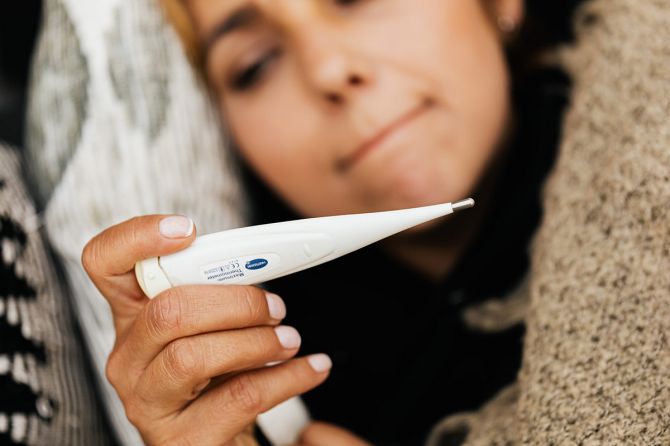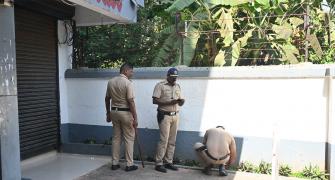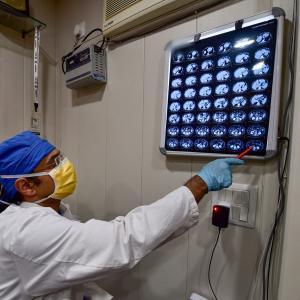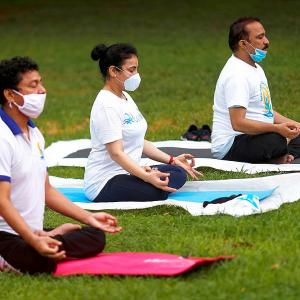Even though the virus is no longer in your body, you still need to be cautious about what you do in the next few days, says Dr Harish Chafle, senior consultant-pulmonology and critical care at Global Hospitals, Mumbai.

Recovering from COVID-19 usually takes around two weeks (for mild cases).
If you or someone you know got infected and recovered, congratulations!
But remember, even though the virus is no longer in your body, you still need to be cautious about what you do in the next few days.
A guide to post-covid care to be followed at home:
Why post-covid care is critical
The coronavirus is a nasty virus that can do a lot of damage to your body.
If your infection was moderate to severe, it is possible that the virus did some amount of damage to your respiratory system.
Even people with mild infection have to be alert in the post-infection stage because symptoms of other health conditions triggered by the coronavirus may surface.
The body becomes weak after having battled the dangerous virus for so many days. You may feel drained and fatigued, which is quite natural.
That is why, even if your body has killed off all the viruses, you still need to shower yourself with a lot of love and care.
This will ensure that you are completely healed and if there is any requirement for additional healthcare checks, you will be able to take the right action at the right time.
1. Slow down your routine
Most doctors suggest that you stay isolated for another 7 days, especially now that some studies have found that even if the symptoms disappear, the virus may still linger in your body.
If possible give yourself a week of complete rest. A well-rested body can focus on healing easily.
Get enough sleep because when you sleep, your body speeds up the recovery procedure, also your immunity builds with good sleep. Do not resume your old lifestyle right away.
Too much work, stress and anxiety will make you ill and will slow down the recover process.
2. Have a nutritious eating routine
Food eases the path to rebuild lost strength and recovery. The right kind of food will help you gain your strength back in days.
Make sure your diet includes plenty of proteins such as milk and milk products, soyabean, lentil soup, legumes, seeds, nuts, boiled eggs, and chicken stew.
Proteins helps in repair of the body. Eat small portions for easy digestion.
Don't forget to eat at least one fruit a day.
Drink plenty of water to stay hydrated. Eat with all the colours of rainbow in your plate.
3. Exercise a little every day consistently
Exercising may sound unappealing at the beginning, but it is essential for a speedy recovery.
Working out improves blood and oxygen circulation. It helps to detoxify your body.
It can also help your brain produce more happiness hormones which will lift your spirits -- something that is greatly needed after you've contracted COVID.
Only exercise as much as you can.
Do your favourite exercise routine and don't push yourself too much.
Ten minutes a day will suffice in the beginning which can be increased gradually as body starts tolerating the new exertion. Increase as much as tolerated.
Do simple exercise like pranayam, kapalbhati, deep breathing exercise, cardio exercise at home.
4. Steam inhalation
It has been found that hot water steam is the best mucolytic agent available. So it is advised to take plain hot water steam for 2 to 3 times a day while recovering from Covid.
As Covid pneumonia affects the lungs badly, it can lead to accumulation of mucous secretions inside the chest.
Steam inhalation helps in removal of these secretions and improving lung function by adequate expansion of lung at the bases.
5. Play memory games
Covid is known to damage brain and neural cells.
To prevent future memory problems, try playing some memory games like sudoku, crossword, jigsaw, etc. this will also help you while away the time without getting bored and irritated.
Formulate ways in which you can invigorate the mind. Start with those activities which are feasible, and continuously challenge yourself to build the sharpness.
The key is going slowly yet accomplishing something for your brain each day.
6. Check your blood oxygen level
Continue to monitor your blood oxygen saturation level with your oximeter.
Even if you have recovered, there could be lung damage and fibrosis of lung that you don't know of.
If so, your oxygen level will fluctuate and dip below 90. You will need to visit the doctor if you face breathing difficulties, chest tightness or chest pain.
7. Watch out for other symptoms
COVID-19 can have long-term consequences for your health. So you have to be alert.
It can cause both lung and heart damage. If you begin to experience shortness of breath, tightness in the chest, warm flushes, bluish discoloration of lips or tips of fingers consult a doctor right away.
Post covid care is essential and should not be ignored. Whether it is a pestering headache or an episode of fatigue, it is essential to focus on any noticeable signs that your body isn't approving the post-covid situation.
Stay in constant touch with your primary care physician if any such issues crop up in the post-recovery period.
Make space for others in your journey to recovery
Understand that you do require rest to feel like yourself once you're COVID-negative.
Consequently, look for help at whatever point you need as it will assist you with rationing your energy levels and fight exhaustion.
Regardless of whether it is shopping for food or preparing it, acknowledge that your body needs enough opportunity to recover hence don't go all out.
So, by taking help or involving someone close while you are on your recovery route is rather beneficial for you.
Getting adequate sleep
Ensuring plenty of rest and proper sleep can help the body bounce back.
Overstraining yourself, or taking the illness lightly is not going to help.
Sufficient sleep and rest will ensure the body recovers well and you also ward off other risk factors.
While normally, a COVID-19 patient for the most part takes three weeks to recover, new research has called attention towards those individuals who may have experienced impact on their kidneys, lungs and heart, long after they recovered.
Other conceivable long-haul effects of COVID-19 are neurological conditions and mental health issues as studies suggest that the infection can likewise attack the brain cells and the nervous system.









